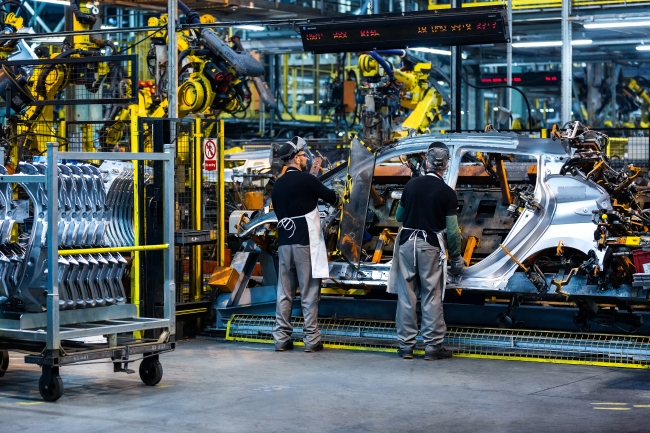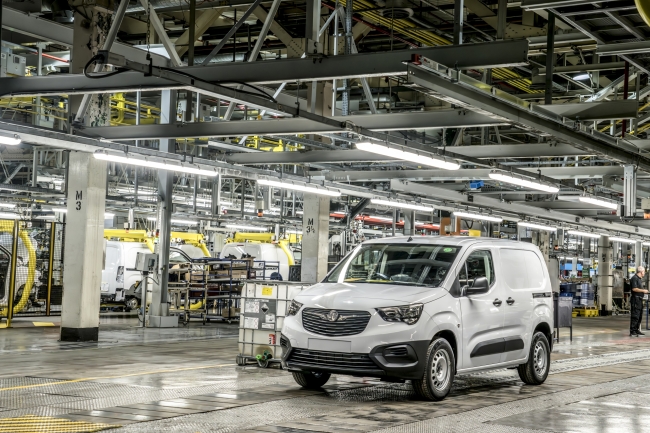3 minute read - 2nd April 2024
Car and commercial vehicle production growth continues
British car and commercial vehicle manufacturing both continued their positive starts to 2024 with output growth up again in February, according to new figures from the Society of Motor Manufacturers and Traders (SMMT).
UK car production rose again in February, up 14.6% to 79,907 units, which is the sixth consecutive month of growth and best February performance since 2021, with nearly all volume manufacturers posting uplifts, driven by output for the domestic market, which grew 58.0% to 20,658 units, an increase of 7,585.
Volumes for export, meanwhile, rose 4.6% to 59,249, representing a rise of 2,615 units, with three quarters (74.1%) of all cars made in the month shipped overseas. The European Union received by far the largest proportion of exports (59.9%) followed by the US (14.8%), China (7.1%), Australia (3.3%) and Turkey (2.3%). Volumes to all these markets apart from Turkey (-20.3%) rose, led by the US up 95.6%.
Never miss the latest manufacturing news by signing up to our newsletter here

UK car production output rose again in February, up 14.6% to 79,907 units and the sixth consecutive month of growth / Picture: Nissan GB
Production of electrified vehicles (battery electric, plug-in hybrid and hybrid) maintained its recent level, representing more than a third (36.3%) of all output in the month. Factories turned out a combined 29,038 units, up 6.0% on the year before. Two thirds (67.3%) of these models were built for export, supporting the need to ramp up UK battery production and electric vehicle supply chain capabilities.
Commercial vehicle production almost doubled in February, with 12,927 vans, trucks, taxis, buses and coaches leaving factory lines which was the best February performance since 2008 and follows a particularly weak February last year as supply chain issues, notably semiconductor shortages, impacted manufacturing output.
February’s production boost was driven by significant demand for British-built vehicles in overseas markets. Exports increased by 188.0% to 10,011 units, representing 77.4% of all commercial vehicles made in the month, with more than nine in 10 (97.6%) destined for the EU. Conversely, output for the domestic market fell for the second month in a row, down -4.0% to 2,916 units, although this represented a decline of just 123 vehicles.
In the year to date, 24,683 CVs have been built in Britain, up some 56.4% on the first two months of 2023. Exports have driven this growth, up 104.5% to 17,976 units, an increase of 9,184, while volumes for the home market have fallen by 279 to 6,707 units.

British commercial vehicle production output also rose with the best February figures since 2008 / Picture: Stellantis
Mike Hawes, SMMT chief executive, said: “Another month of growth for UK car production is welcome news, reflecting strong demand at home and around the world for the latest British-built cars. The industry is transitioning from internal combustion engine cars to electrified vehicles, building on the massive investment commitments made last year. The UK industry faces stiff competition, however, as global competitors seek to secure new models and technologies so a commitment to our industrial competitiveness, from all political parties in this likely election year, must be maintained.
“Commercial vehicle manufacturing has kickstarted the year with two months of impressive growth as robust overseas demand for British-built vans continues. The challenge now is to maintain this success amidst fierce global competition, accelerating production of zero emission vehicles to enable the fast paced delivery of these critical models. Strong performing economies at home and abroad will be key to this ambition.”
